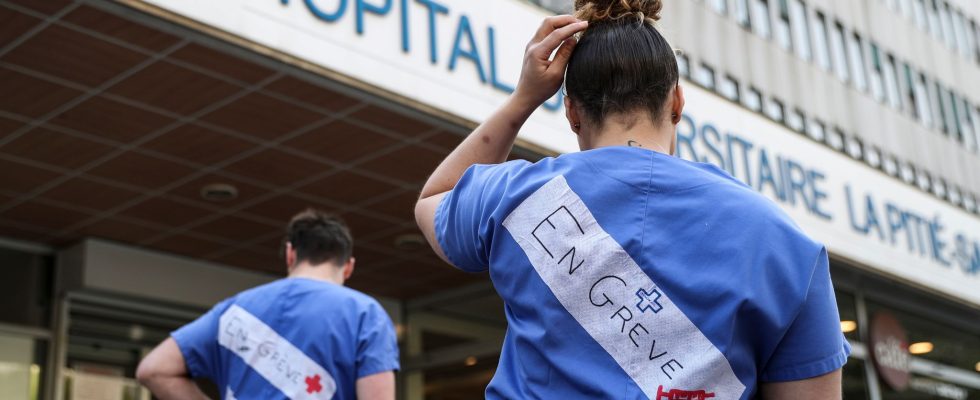Operation “zero stretchers” in the corridors of emergencies. The doctors of the public hospital are called to strike on July 3 and 4, to denounce the lack of attractiveness of their profession and to demand the revaluation of night and weekend guards. “The anger of practitioners is historic”, assures the confederation Actions Practitioners Hospital (APH) in a press release. “The contempt for those who have cared for our fellow citizens during the pandemic and who are still holding on at all costs must stop immediately.”
In detail: Actions Practitioners Hospital, which did not sign the Ségur de la santé agreements on the increase in wages in July 2020, calls for a strike on July 3. Alliance Hospital and the Intersyndicate of Hospital Practitioners (INPH), which have signed, are calling for a strike on July 4. “The profession of hospital practitioner has become a real foil,” they believe. “Many of our colleagues from all disciplines and of all ages are quitting.” Currently, 30% of hospital doctor positions are vacant, according to figures from the Federation of Public Hospitals (FHF).
Minimal impact on patients
If the anger is there, the consequences of the strike should be minimal for the patients. Most doctors – strikers or not – will occupy their posts. As a public service, the hospital is subject to the law of July 31, 1963. It is obliged to ensure the continuity of care. Practitioners in the public hospital will therefore have to perform a “minimum service”, as they would on a Sunday or a public holiday.
In order to organize, a strike notice must be filed five days before the beginning of the movement. This leaves time for directors of public hospitals to resort to subpoenas, that is to say, letters that oblige doctors to work, even if they had planned to follow the strike. Always with a view to ensuring a minimum service, public hospital practitioners are prohibited from resorting to a “rotating strike”. This consists of alternating the days of mobilization between employees so that the workforce is never full.
For all these reasons, the impact of the strike will be limited. “There may be some consultations or interventions postponed”, advance after AFP doctor Rachel Bocher, president of the INPH. But the doctors still hope to be heard. The situation is critical: the number of candidates for the hospital practitioner competition fell further in the spring of 2023, with 3,364 applications received for more than 10,000 advertised vacancies, compared to 4,056 applications a year before, according to official figures.
On the side of the revaluation of night guards, Emmanuel Macron had promised at the beginning of January to “open the site of the remuneration of night work” and the “permanence” of care, that is to say guards and on-call duty . But negotiations with the Ministry of Health have stalled since mid-May. The latter, however, is preparing a global plan to restore the attractiveness of the hospital career, awaiting arbitration from Bercy and Matignon. The unions of hospital doctors will be received by the ministry on July 4.
